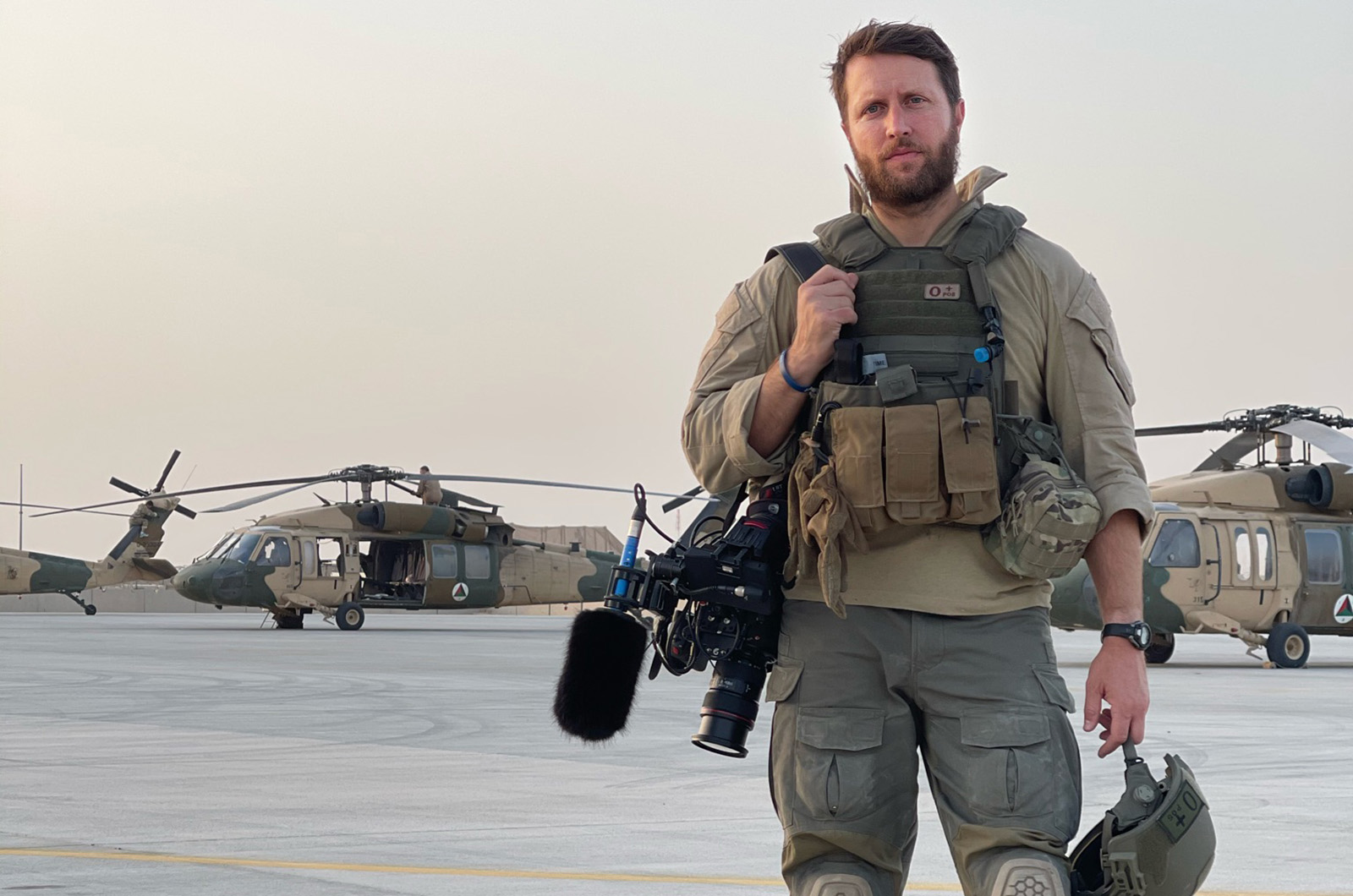Matthew Heineman never expected to be there at the fall of Kabul.
When the documentarian and seasonal Chilmark resident set out to make his most recent documentary film, Retrograde, he imagined it as a deep dive into the world of the Army Green Berets.
“They are known as quiet professionals of the military,” he said, in a recent phone interview with the Gazette. “They have never had a film, unlike these other elite groups.”
It took years to build up the rapport necessary to gain the kind of intimate access he needed to create such a film, and still more years before he could get to Afghanistan after Covid delayed filming. When he arrived, he said, he found that a different story had presented itself.
“By the time that happened, it became clear that we could actually tell the story of the end of the longest war in U.S. history.”
That is the story that Retrograde tells, about the U.S. retreat from Afghanistan, and of the Afghan people who remained to fight. This Sunday, Jan. 15 at 7:30 p.m., Islanders will get a chance to see the film at the Martha’s Vineyard Film Center, followed by a virtual Q&A with Mr. Heineman.
Mr. Heineman is no stranger to high-stakes filmmaking, having directed and produced documentaries about Mexican drug cartels, ISIS insurrectionists and frontline Covid nurses.
“Through most of my career I’ve tried to take these large amorphous subjects...and to try and put a human face to them,” he said. “These issues are so often relegated to stats in the headlines, and I want to make you feel like you are there, make you feel like you understand them.”
In Retrograde, this human-driven approach is evident. As historic events unravel, Mr. Heineman focuses sustained shots on the faces of his subjects. The effect is a deeply personal record of a time of crisis.
“People often say it’s ‘fly-on-the-wall filmmaking,’ but I don’t like that, it implies a passivity,” he said. “Instead, the goal is to become part of the daily lives of our subjects.”
In the film’s second half, following the retreat of U.S. forces from Afghanistan, the camera shifts focus to the singular character of Sami Sadat, a two-star general in the Afghanistan military. Mr. Heineman first met General Sadat while he was being advised by the Green Berets. Later, Mr. Heineman returned to the country to focus more on the general’s experience of the Taliban’s rapid takeover of the country.
“He was quite reticent of us coming back, it took some pretty deep conversations,” Mr. Heineman said. “It’s very rare to get that kind of intimacy with a two-star general, it’s quite a privileged purview.”
The film follows General Sadat as he mounts one of the national army’s last military defenses against the Taliban. Intense scenes of active combat and military strategizing are joined by more intimate scenes, with General Sadat shaving or talking on the phone with his father.
Ultimately, the battle is lost, Kabul falls to the Taliban, and General Sadat flees Afghanistan. The culminating scenes of the movie focus on the Kabul airport, where the U.S. military scrambles to evacuate as many allies as possible, turning away hundreds more hoping to escape.
Filming amid danger and tragedy, said Mr. Heineman, has taken its toll.
“Every one of these films has taken something out of me and changed me forever,” he said. “I have nightmares nearly every night, I suffer from PTSD...it’s been a pretty heavy couple of years.”
Still, the story is worth the effort, he said.
“I hope 100 different people take away 100 different things from this movie,” he said, explaining that he hopes the film might reinvigorate the conversation surrounding the current state of Afghanistan.
Thus, the film’s title, Retrograde, a term for military retreat from an area, and for a general moving backwards.
“In many ways we’ve moved back to where we were 20 years ago, before the invasion,” he said. “In many ways, the war in Afghanistan is a distant memory”
Retrograde screens at the Martha’s Vineyard Film Center at 7:30 p.m. on Sunday, Jan. 15.






Comments (2)
Comments
Comment policy »